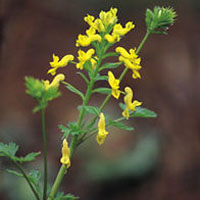health guides
Corydalis
 © Martin Wall
© Martin WallParts Used & Where Grown
Corydalis is a herb native to the Chinese province of Zhejiang. The portion of the plant that is used medicinally is the tuberous rhizome.1
- Reliable and relatively consistent scientific data showing a substantial health benefit.
- Contradictory, insufficient, or preliminary studies suggesting a health benefit or minimal health benefit.
- For an herb, supported by traditional use but minimal or no scientific evidence. For a supplement, little scientific support.
Our proprietary “Star-Rating” system was developed to help you easily understand the amount of scientific support behind each supplement in relation to a specific health condition. While there is no way to predict whether a vitamin, mineral, or herb will successfully treat or prevent associated health conditions, our unique ratings tell you how well these supplements are understood by the medical community, and whether studies have found them to be effective for other people.
For over a decade, our team has combed through thousands of research articles published in reputable journals. To help you make educated decisions, and to better understand controversial or confusing supplements, our medical experts have digested the science into these three easy-to-follow ratings. We hope this provides you with a helpful resource to make informed decisions towards your health and well-being.
This supplement has been used in connection with the following health conditions:
| Used for | Amount | Why |
|---|---|---|
Insomnia | Refer to label instructions | Corydalis contains a few ingredients, one of which has been shown to influence the nervous system, providing pain relief and promoting relaxation. |
Pain | Take an amount supplying 75 mg per day of tetrahydropalmatine (THP) | Preliminary reports indicate that THP (an alkaloid from the plant corydalis) may be effective in reducing nerve pain. |
Cardiac Arrhythmia | Refer to label instructions | An active constituent in corydalis, dl-tetrahydropalmatine, may have an anti-arrhythmic effect on the heart. |
Dysmenorrhoea | Refer to label instructions | A constituent of corydalis called tetrahydropalmatine appears to heave pain-relieving and sedative effects. It has shown to be effective for painful menstruation. |
Peptic Ulcer | Refer to label instructions | Corydalis extracts are useful in relieving pain and in treating stomach ulcers. |
Traditional Use (May Not Be Supported by Scientific Studies)
In Traditional Chinese Medicine, corydalis is said to invigourate the blood, move qi (energy that travels through the body), and alleviate pain, including menstrual, abdominal, and hernial.2
Copyright © 2024 TraceGains, Inc. All rights reserved.
Learn more about TraceGains, the company.
The information presented by TraceGains is for informational purposes only. It is based on scientific studies (human, animal, or in vitro), clinical experience, or traditional usage as cited in each article. The results reported may not necessarily occur in all individuals. Self-treatment is not recommended for life-threatening conditions that require medical treatment under a doctor's care. For many of the conditions discussed, treatment with prescription or over the counter medication is also available. Consult your doctor, practitioner, and/or pharmacist for any health problem and before using any supplements or before making any changes in prescribed medications. Information expires December 2024.


 We are proud to announce that
We are proud to announce that  As the market evolves, customers increasingly request a wider variety of omega-3 options for their lipid...
As the market evolves, customers increasingly request a wider variety of omega-3 options for their lipid...  Maintaining healthy glucose levels is crucial for preventing metabolic conditions like diabetes,...
Maintaining healthy glucose levels is crucial for preventing metabolic conditions like diabetes,...  Looking at formulating a new vitamin blend? Discover
Looking at formulating a new vitamin blend? Discover 







































